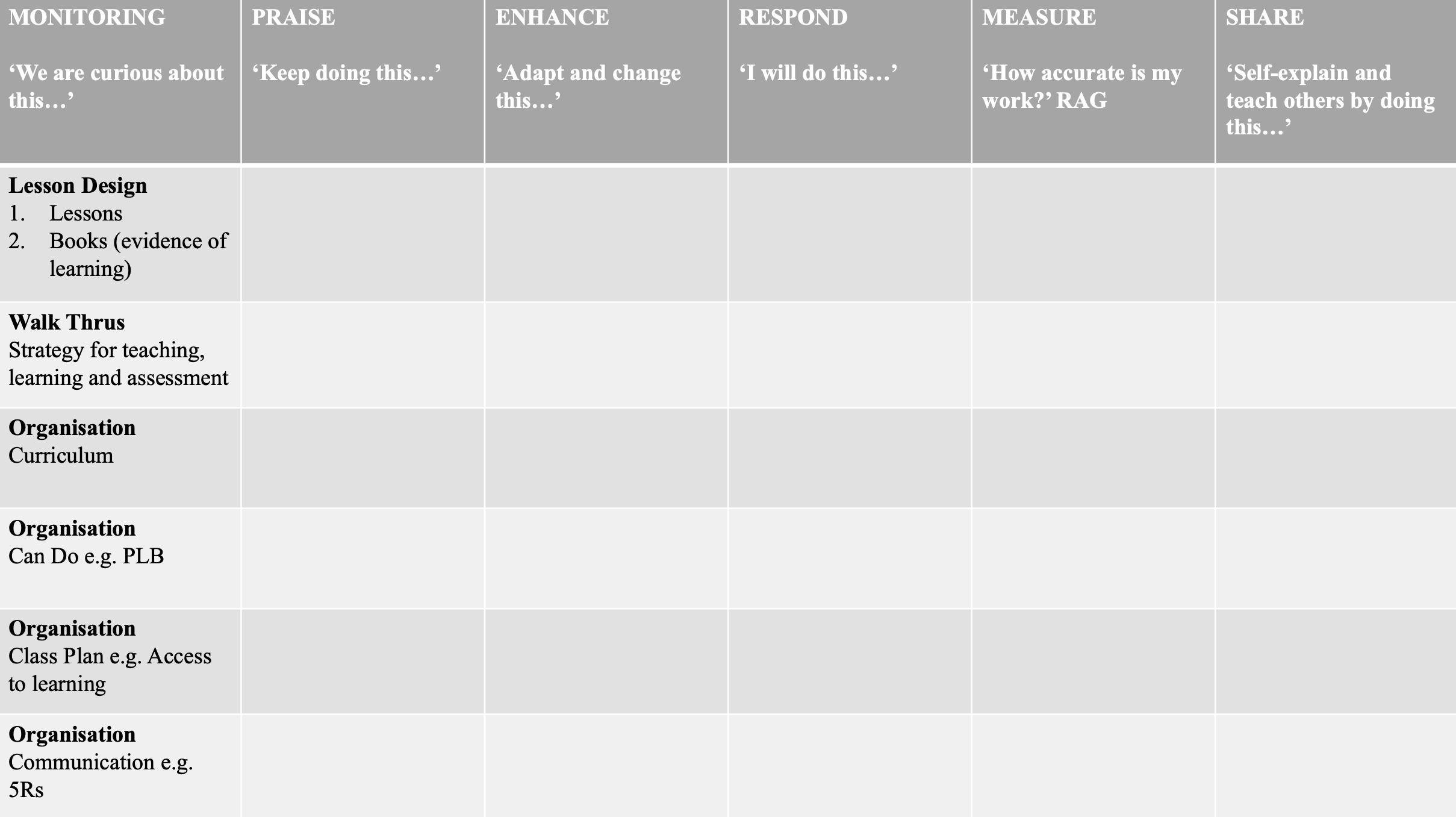Monitoring the Impact of Continued Professional Development
When monitoring our provision and its effectiveness, it is important to have a uniform approach to managing this across the school. All staff and pupils using a consistent set of vocabulary - a language that cuts through barriers to understanding that might be unintentionally caused by individual opinion and nuance.
Staff spend time together each term to clarify the meaning behind our pedagogy as well as what each part looks like in the classroom and the intended outcome. Staff work hard to create the conditions to have professional conversations about what is working and what needs more attention. For example,
1. What stifles or enables learning to flourish?
2. What are the possible causes of certain learning behaviours and the effects on lessons in general?
Staff understand that their choices in lessons will have an intended impact. Monitoring of our Continued Professional Development is designed to enable staff to become more intentional in their decision-making process and increase their sense of awareness of what:
1. their instincts, ideas and observations tell them
2. what research tells us
3. how observations and research combined inform future decision making in the classroom
Teachers work together to become collectively responsible for the quality and effectiveness of decisions in classrooms. They work toward clarifying the missing details that would be found within a sentence, such as,
My observation was ... which led to... Therefore...
The focus for teachers is to become confident that their decisions in the classroom are having the intended impact on pupil learning.
Observations of learning
Observations of learning are made as a supportive part of gaining additional feedback. They are based on identifying what is working and what requires further attention and with direct reference to Mayflower's chosen approach to teaching, learning and assessment. Observations can bring powerful insights into provision, but it is important to note that they are limited in use due to being an isolated snapshot - a single moment in time. They might well pick up on obvious tweaks that could potentially make a difference, or they might trigger curiosity that leads to a deeper and more useful look at other sources of evidence. These would give a clearer view of what is both working and making a positive impact on pupils' learning as well as what requires further attention.
Offering Feedback | Using Instructional Coaching as a way of Improving Teaching and Learning
Staff use The Walk Thru methodology to provide the format of coaching conversations. Phases apply Paul Bambrick-Santoyo's principles of individual coaching. Common themes in provision will be identified. Instructional Coaching will be used as a way to promote safe and comfortable working conditions that lead to powerful conversations that are aimed to improve classroom practice within a collaborative team model.
Monitoring and Identifying Common Themes in Provision
Staff work together to reflect on and refine our provision. Mayflower's pedagogy forms the basis of all monitoring. Staff identify common themes as well as individual areas of development. Details of these areas can be found in the table below.

*add feedback forms for specific parts here
